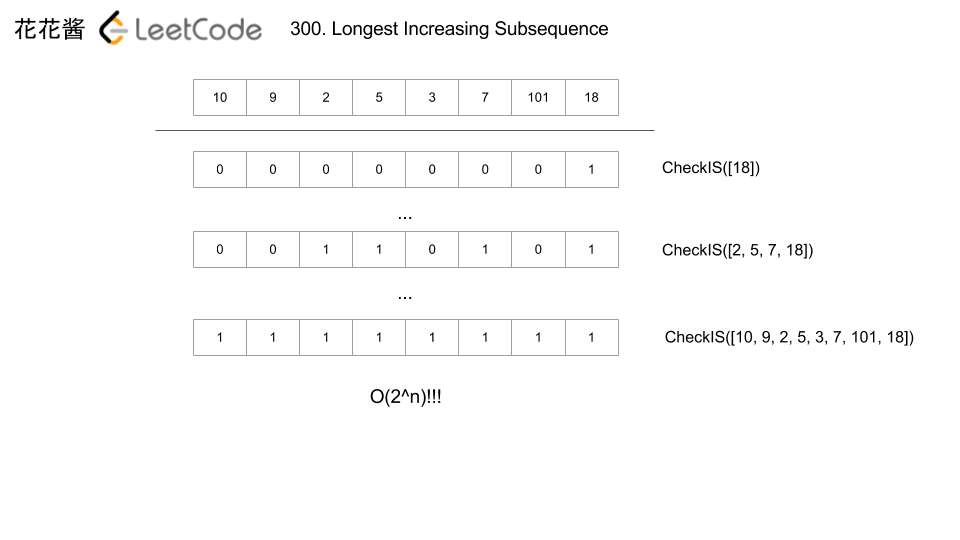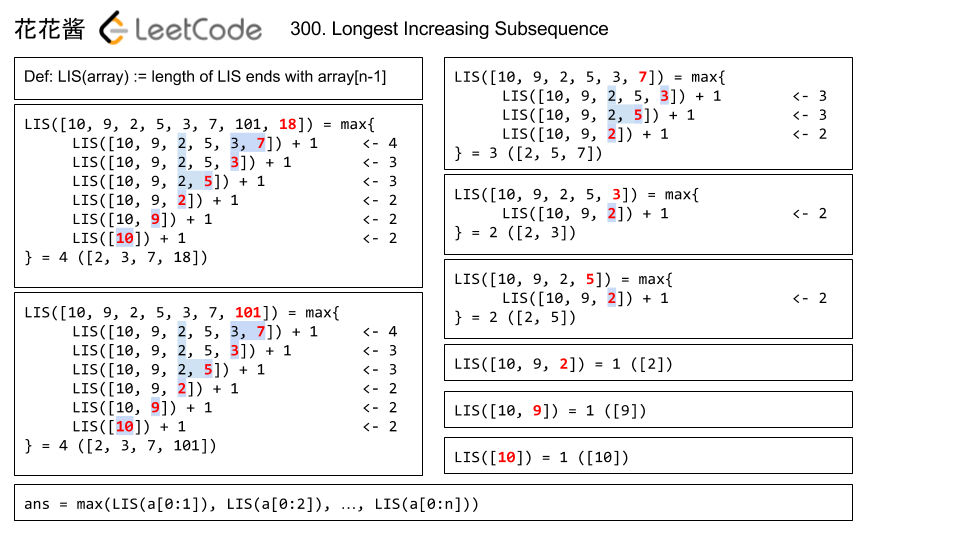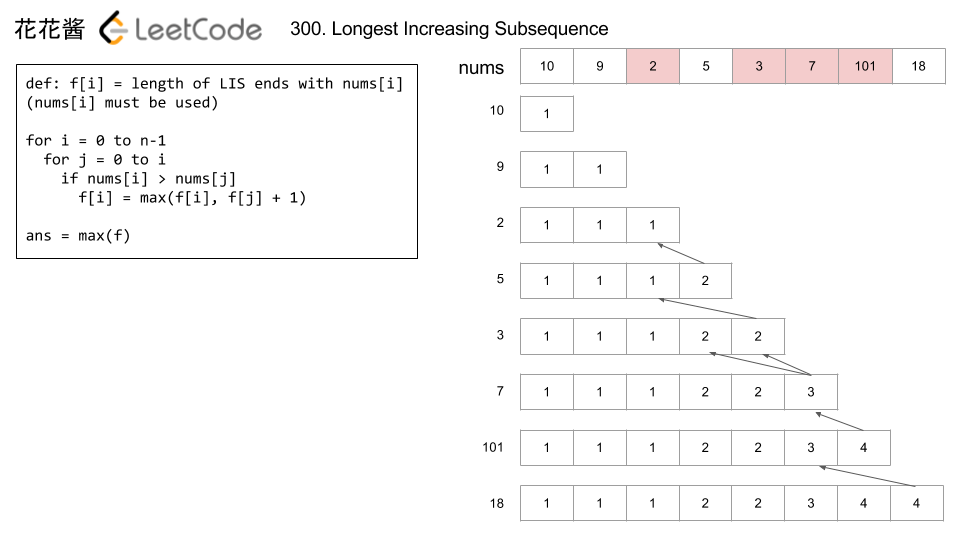Problem:
Given an unsorted array of integers, find the length of longest increasing subsequence.
For example,
Given [10, 9, 2, 5, 3, 7, 101, 18],
The longest increasing subsequence is [2, 3, 7, 101], therefore the length is 4. Note that there may be more than one LIS combination, it is only necessary for you to return the length.
Your algorithm should run in O(n2) complexity.
Follow up: Could you improve it to O(n log n) time complexity?
Idea:
Dynamic Programming
Time Complexity:
O(n^2)
Solution 1:
|
1 2 3 4 5 6 7 8 9 10 11 12 13 14 15 |
// Author: Huahua // Running time: 29 ms class Solution { public: int lengthOfLIS(vector<int>& nums) { if (nums.empty()) return 0; int n = nums.size(); auto f = vector<int>(n, 1); for (int i = 1; i < n; ++i) for (int j = 0; j < i; ++j) if (nums[i] > nums[j]) f[i] = max(f[i], f[j] + 1); return *max_element(f.begin(), f.end()); } }; |
|
1 |
Solution 2: DP + Binary Search / Patience Sort
dp[i] := smallest tailing number of a increasing subsequence of length i + 1.
dp is an increasing array, we can use binary search to find the index to insert/update the array.
ans = len(dp)
Time complexity: O(nlogn)
Space complexity: O(n)
C++
|
1 2 3 4 5 6 7 8 9 10 11 12 13 14 15 16 |
class Solution { public: int lengthOfLIS(vector<int>& nums) { const int n = nums.size(); if (n == 0) return 0; vector<int> dp; for (int i = 0; i < n; ++i) { auto it = lower_bound(begin(dp), end(dp), nums[i]); if (it == end(dp)) dp.push_back(nums[i]); else *it = nums[i]; } return dp.size(); } }; |
Python3
|
1 2 3 4 5 6 7 8 9 10 |
class Solution: def lengthOfLIS(self, nums: List[int]) -> int: d = [] for x in nums: i = bisect_left(d, x) if i == len(d): d.append(x) else: d[i] = x return len(d) |
Related Problems:
请尊重作者的劳动成果,转载请注明出处!花花保留对文章/视频的所有权利。
如果您喜欢这篇文章/视频,欢迎您捐赠花花。
If you like my articles / videos, donations are welcome.






Be First to Comment